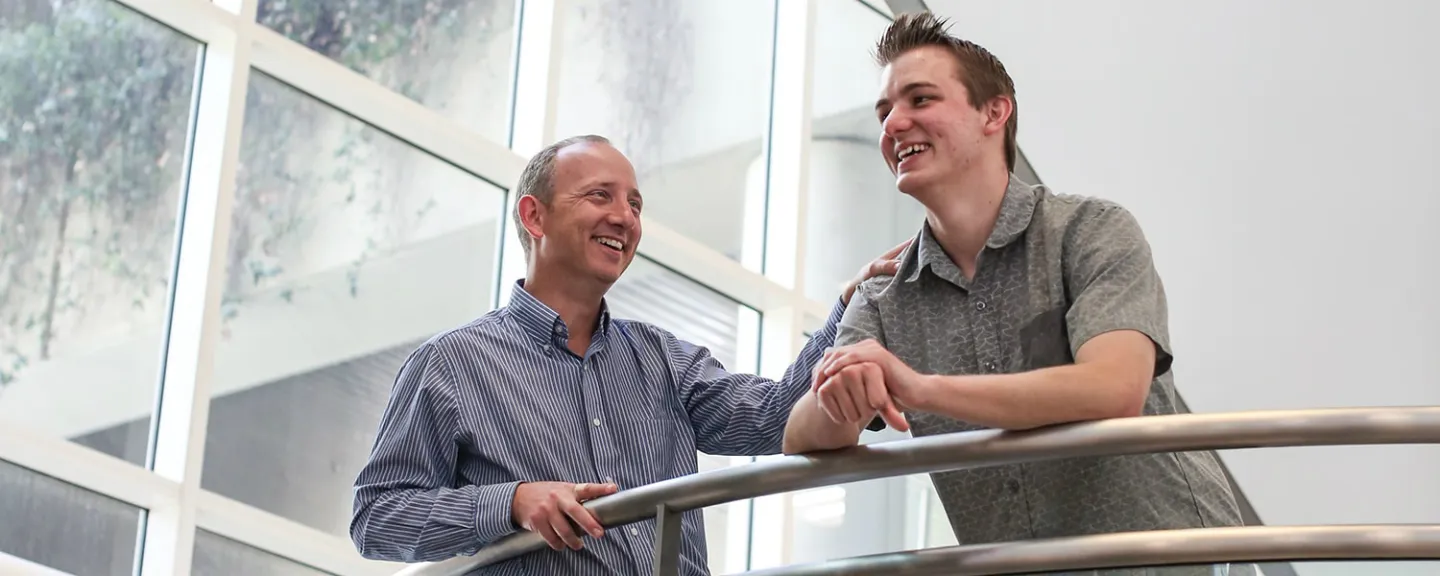- Home
- >
- APU Articles
- >
- News Article
APU Celebrates 25 Years of Honors Education
August 22, 2018 | Written By Evan R. Cain

Ashley’s work with Health to Hope began against the backdrop of the healthcare crisis. In 2009, a declining economy caused millions of Americans to be unable to afford health care. “The whole nation, including staff at Kaiser, was debating the Affordable Care Act,” said Ashley. “It pained me knowing that some people could not get help at my own workplace.” Ashley crossed paths with a coworker who informed him of the then-developing Health to Hope operation. “When I learned that this project needed a doctor, I knew God placed this matter on my heart for a reason.” By June 2012, following three years of designing clinics, writing grants, and seeking funding and federal qualification, Health to Hope mobilized its operation, which today offers 17 primary and mental health services to an underserved, majority-immigrant constituency.
“People matter” underpins Ashley’s philosophy as a Christian and a physician. “Many health facilities fail to serve their patients well because the work is aligned with profit margins more than patients. My aim is simple—love God and love my neighbor.” Since joining Health to Hope, Ashley has expanded his mission to love others. In 2013, he received the David Lawrence Community Service Award, offered by Kaiser to staff members who exemplify long-term, voluntary dedication to the health needs of a community, for founding and directing the Urban Community Action Projects (UCAP). UCAP provides comprehensive health services to homeless individuals, serving roughly 300 patients a month.
Ashley traces this desire to serve back to his alma mater. A graduate of Azusa Pacific’s first Honors Program cohort, Ashley accepted the university’s invitation in 2016 to mentor students enrolled in the new Honors College. “As I reflected on my time at APU, I realized that I am who I am because of the mentorship and care that professors gave to me years ago. I needed so much help and grace in my journey. Once again, God was calling me to serve by extending those blessings to others.”
His mentee, Silas Griffin ’18, part of the first graduating class of the Honors College, credits Ashley with helping him bridge key lessons between his Honors College education and future career as a physician. “In the Honors College, we read great works from Plato to Wollstonecraft to Achebe. I was confronted with many non-Christian philosophies as well as the foundational ideas of Christianity’s greatest thinkers,” said Griffin. “As readers, we are often tempted to judge authors before we are exposed to their arguments—to focus on differences instead of learning opportunities.” Griffin found that the open-mindedness he developed as a student plays an important role in patient care. “Dr. Ashley stresses the importance of treating every patient as an individual of equal worth despite perceived differences. As I gained experience through my field internship, I realized that open-mindedness in scholarship can translate to compassionate care as a physician. One day, I hope to emulate Dr. Ashley’s genuine passion and concern for the well-being of every patient he serves.”
As APU celebrates 25 years of honors education, Ashley’s and Griffin’s stories capture the heart of the academic area’s curriculum and leadership development model. “Students seeking to explore life’s big questions today become the next generation of influencers—authors, artists, ministers, professors, doctors, and corporate leaders,” said David Weeks, Ph.D., dean of the Honors College. “The Honors College actualizes that potential, forming students into critically thinking, compassionate, high-level leaders.”
Griffin hopes to honor Dr. Ashley and his professors by furthering their legacy of loving God and loving others. “Dr. Ashley and the Honors College have shown me that regardless of what we do as a career, when we strive to see people as God does, and rely on His strength to care for them, we do more than make a living,” said Griffin. “We become life and light for the world.”